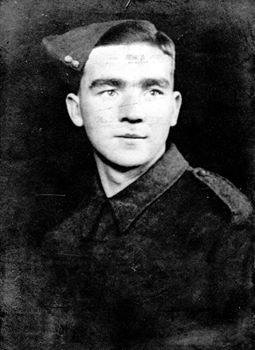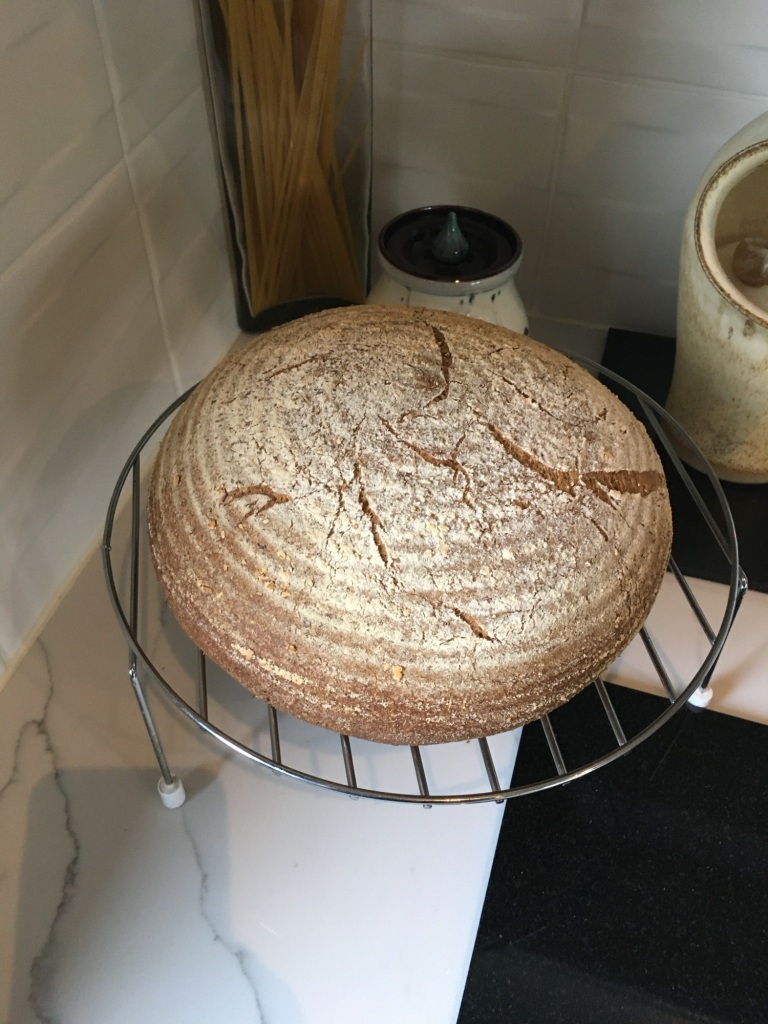
My Dad used to tell me that he fought a bloody war so that we could vote. He was in the Territorial Army and was called up two months before the Second World War started in July 1939. He was 17 and had just migrated to Leicester from The Felling. He voted for the first time, still in uniform, six years later in 1945. Labour won an overwhelming majority on that day and began a social revolution that created The Welfare State. We never discussed it but I have no doubt that he voted for the Labour Party. I am also convinced that he voted Labour in every subsequent election until his last vote on May 1st 1997. He had been ill for some time and I was not surprised when my Mam rang the night before the election to say that my Dad wanted to vote. I knew that he was not able to walk far and I agreed to drive to Leicester from my home in Merseyside to take them to the polling station. It was a beautiful May morning as I parked my car outside of their council bungalow. I looked up and there was my Mam waiting for me on the doorstep as she always did. She was smiling as I lowered my head to kiss her. Every time we met she seemed to have shrunk a little further. Her spine curving with the scoliosis. We went into the small living room. My Dad was sitting on his usual chair. He nodded his head to acknowledge me. I nodded back and said hello. We all knew that he had not recovered from the coma and his long stay in hospital. He looked a shadow of the man who had once dominated our lives. He was dressed in his good clothes which hung off him. He was always smartly dressed for such occasions. Voting was a duty like going to church and he dressed up for both. He asked why I was there. I explained that I had come to take them to vote. He said that there was no need as he was still capable of walking. I knew that there was no point in arguing and I said I would walk with them anyway. He became agitated and said that he was not yet an invalid. I remained silent. Deep down I knew that he was pleased to see me and to have my support. No more was said. My Mam went next door to fetch their neighbour, Flo. When they returned we set off almost immediately. Once my Dad was ready to leave there was never any waiting. It had been that way all of my life. Some people saw it as rude and abrupt. I now believe it was more to do with a deep restlessness and reluctance to show any feelings. We crossed the green in front of their bungalow and turned onto the pavement. I walked in front with my Dad. My Mam and Flo followed on behind. Our progress was painfully slow. He had lost none of his military bearing and he swung his cane like a swagger stick. His back was ramrod straight but his legs were failing him. I thought for one moment to offer my arm in support but I didn’t. I knew he would not take it. He had said that he was going to walk to vote and that is what he was determined to do, no matter how long it took. The polling station was at the end of the street in the junior school which my brother had attended. It was only 400 yards from their bungalow. To reach the school we had to pass the house we had moved into after we were homeless in 1965. These were the streets of my youth. I had played football and cricket here. I had loved, argued and cried here. I had grown up here, leaving school at 16 to walk down the road to catch a bus to start my first job in a factory. Now 30 years later I was walking the same road again. Where once he had led me I was now leading him. Behind us my Mam and Flo were talking. We did not talk. Finally we reached the gates of the school and crossed the field to the main entrance. I did not go in as I had planned to vote that evening with my wife at home. I waited outside for them. The sun was shining. There were few voters about as it was early. The only other people waiting were the party supporters. They reminded me of a story that we shared. It was 1976. I was Secretary to the Leicester Inter Racial Solidarity Campaign. We were campaigning against the National Front who had a strong following in Leicester at the time. The local elections were taking place and my Dad was in charge of a polling station. All through the day the National Front were gathered noisily outside. When the station closed in the evening my Dad walked up to the leader and asked why they had chosen that station to picket. The leader said that they had heard that the station was being managed by Tom Murtha the secretary of the group they hated. My Dad confirmed that he was Tom Murtha but not the one they wanted. That was his son Tommy who was leading the campaign against the National Front at another station across the City. The National Front leader shook his head in anger. My Dad looked him in the eye, smiled and walked away. I was smiling at this image as he walked out of the school. He asked me why. I told him that I had been thinking about the time he had faced down the National Front for me. He eyes flashed and he said that sadly he no longer had the strength to do that but at the time he had enjoyed it and that they were all bloody cowards anyway. My Mam and Flo came out and asked what was wrong. I said that it was nothing just a proud memory of the past. The walk back seemed easier. The memory had quickened his step. I did not ask him who he had voted for. He would not have told me. That was part of the ritual. Not only had he and many others fought for the right to vote they had fought for it to be done in secret. That night Labour won a massive victory and many of us celebrated long and hard in the hope of a new beginning. I remember thinking if he had the same hopes on hearing about the Labour victory in 1945? He rang the next morning. All he said was that he was pleased that my mates had won. He told me not to be disappointed if they failed to deliver. He died the next month. Only six weeks after that final walk. I will never knew how he voted on that day. I like to think that even in his old age the fire that had given those that survived the war so much hope and optimism was still with him. He was correct. We were disappointed. We always are. However, that should not stop us from continuing to vote for our dreams of a better tomorrow. My Dad’s generation did and they fought a war to give us the chance.






